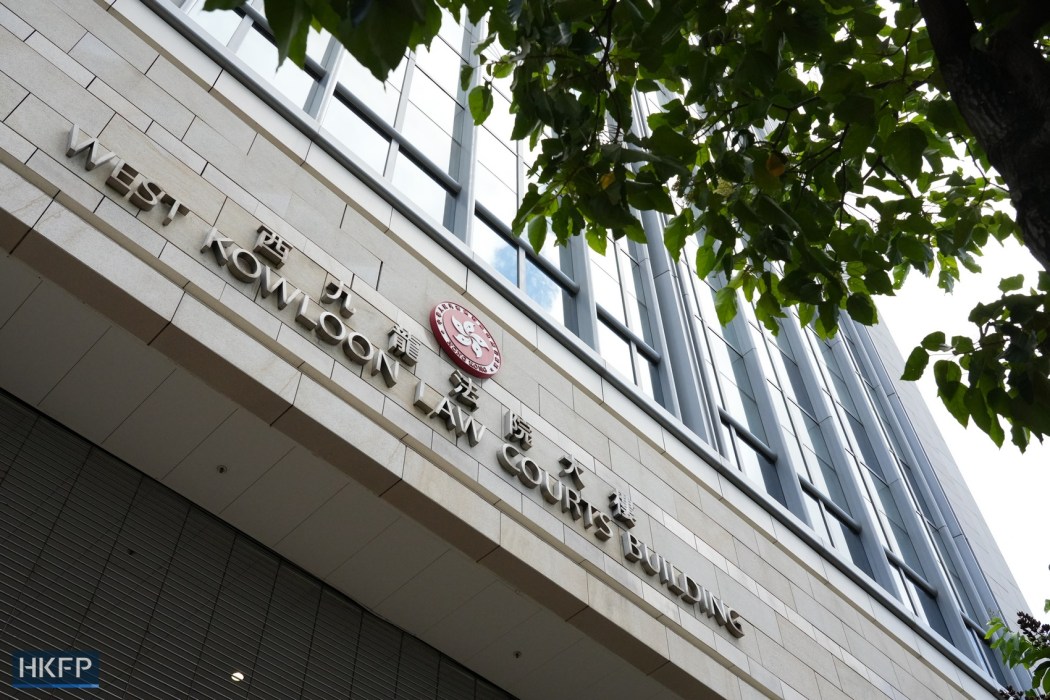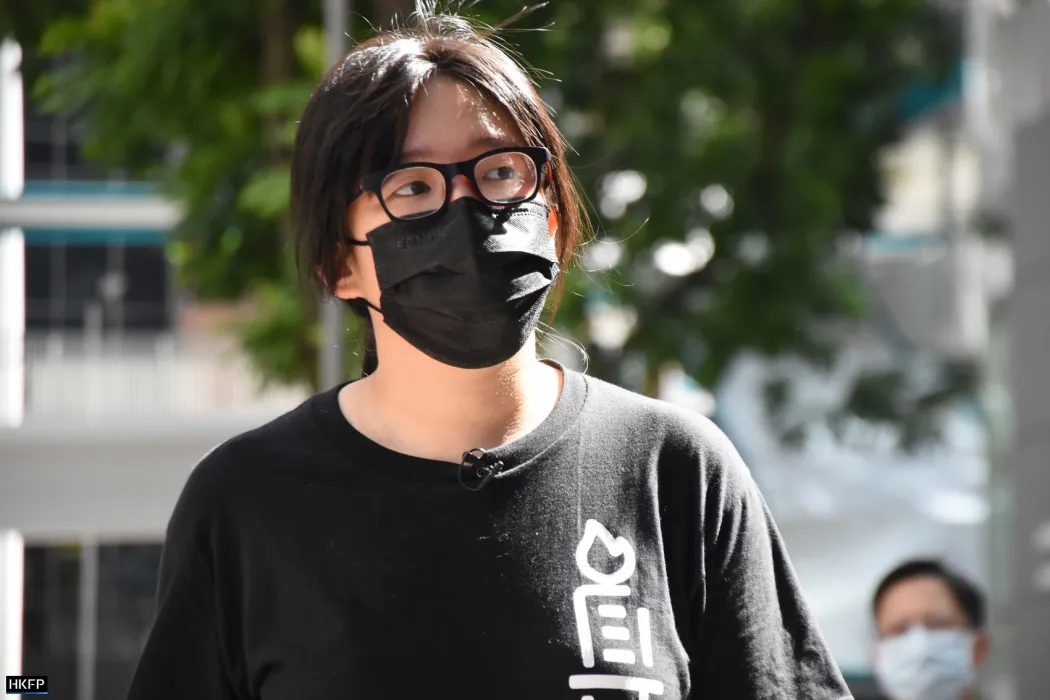The Hong Kong group which staged Tiananmen vigils was exercising a constitutionally protected right to freedom of speech when stating its five goals and these did not breach the national security law, a lawyer for one of its former leaders said.
Chow Hang-tung, former vice-chairperson of the Hong Kong Alliance in Support of Patriotic Democratic Movements of China, is asking Acting Principal Magistrate Veronica Heung to rule that she has no case to answer under the security law.

Thursday marked the first anniversary of Chow’s arrest and detention under the security law. Chow shouted “Happy Mid-Autumn Festival!” as she stepped into the dock at the West Kowloon Magistrates’ Courts.
Chow, along with the Alliance itself and two other ex-leaders Lee Cheuk-yan and Albert Ho, are charged under the Beijing-imposed security law with incitement to subversion.
The Alliance for decades organised Hong Kong’s annual vigils in Victoria Park to commemorate victims of the Tiananmen crackdown. It is estimated that hundreds, if not thousands, of protesters died after the People’s Liberation Army was sent to crack down on student protests in Beijing on June 4, 1989.
The group, formed in 1989 and disbanded last year following a members’ vote, had five operational goals: release the dissidents, rehabilitate the 1989 pro-democracy movement, demand accountability for the June 4th massacre, end one-party dictatorship, and build a democratic China.
After the prosecution applied to transfer her case to the High Court, Chow elected for a preliminary inquiry, in which the court must review the strength of the evidence against her.
Prosecution evidence ‘insufficient’
Barrister Erik Shum, representing Chow on Thursday, argued that there were three elements in the offence of subversion which the prosecution must prove: the use of violence, the threat to use violence, or an illegal act that involved violence.

Shum argued that the illegal acts in question must involve the element of violence. Otherwise it would be “absurd,” as incitement of unlawful acts such as jaywalking would be seen as violating the security legislation.
The barrister said prosecutors targeted only one of the Alliance’s five operational goals, “end one-party dictatorship” in China, as the grounds for bringing the case.
Shum said debating whether the country should end one-party rule was “a conflict of ideology” and not a crime, and it was not for the court to rule whether the Alliance’s five goals were politically sound.
The magistrate was also asked to set a “clear line,” through her ruling, between the exercise of freedom of speech and expression as protected by the Basic Law and the Hong Kong Bill of Rights, and subversion of state power by unlawful means.
There was no change in the slogans used and rallies organised by the Alliance before and after the national security law was implemented in 2020, Shum said. The government never interfered with the Alliance’s activities in the 30 years prior to the security law.

The prosecution was essentially saying that following the implementation of the sweeping legislation, there was a “quantum leap” so that what the Alliance had always been saying suddenly became an offence, Shum said.
The barrister said the prosecution had failed to demonstrate that Chow had incited others to commit unlawful acts, whether or not there were links to violence, with the aim of subverting state power.
Shum said the five goals were intended to promote political and civil rights, and were the exercise of freedom of speech as protected by the Bill of Rights. They were not intended to overturn China’s system or topple the regime.
The prosecution had also failed to prove what was China’s “fundamental system,” Shum said, or define what central body of power was destroyed. There was no prima facie case against Chow.
Following Shum’s submissions, Heung adjourned the handing down of her ruling to Friday.
Support HKFP | Policies & Ethics | Error/typo? | Contact Us | Newsletter | Transparency & Annual Report | Apps
Help safeguard press freedom & keep HKFP free for all readers by supporting our team
























